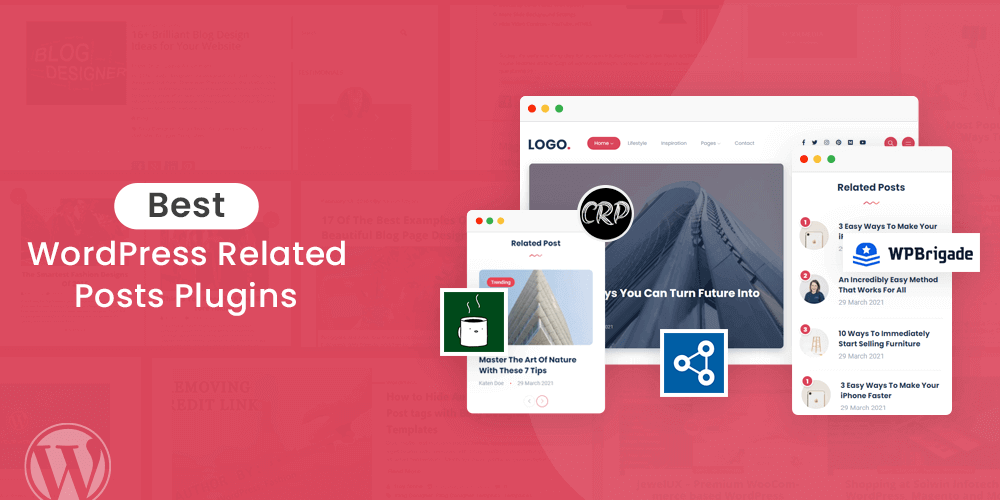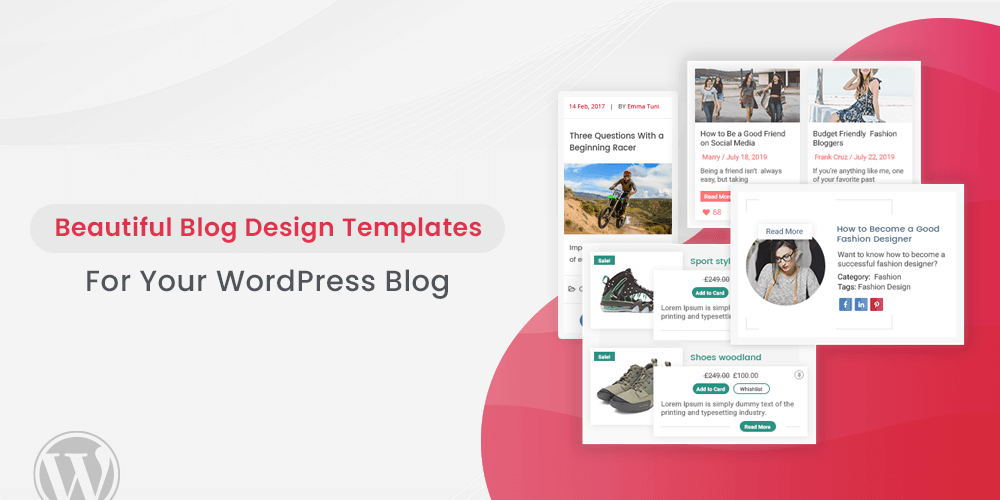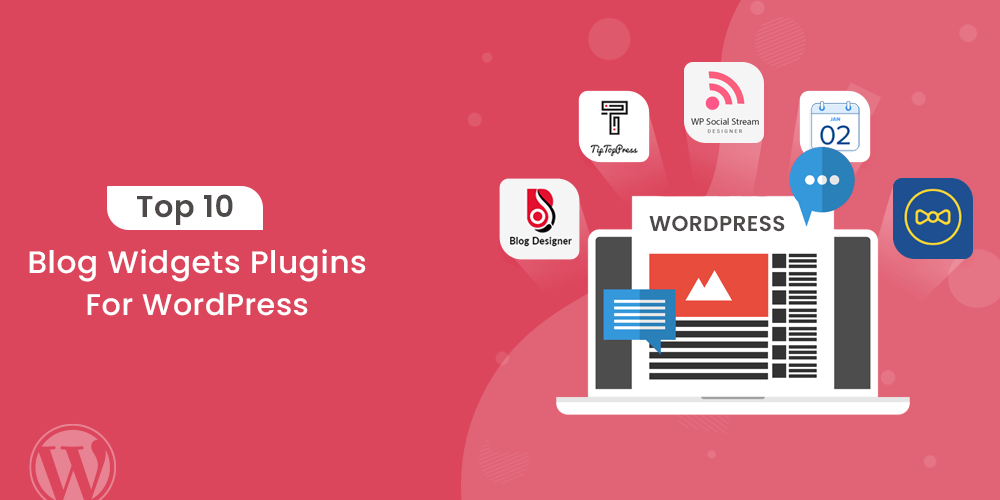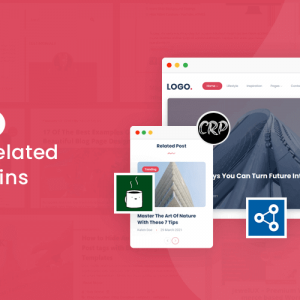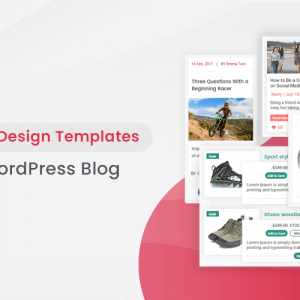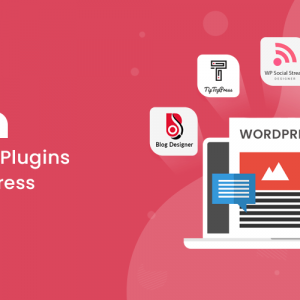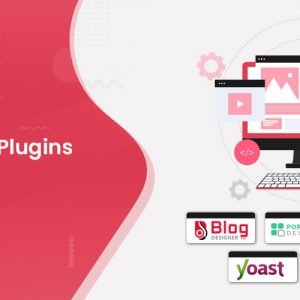A blog provides an excellent way to share content with your audiences. You can also monetize it and make a fantastic income from it. Talk to the thousands of people who have discovered how to do it well, and they will tell you need a plan. A proper business plan for blogging will guide your activities, allowing you to achieve better results. It would not be a good idea to go into it without having a plan. You may have the best Website design and very responsive themes, and yet you are not able to attract the right traffic.
From that, you need to understand that you are not the only blogger on the online platform. You need a way to stand above the competition. Our article below will show you how to write a business plan for a blog.
Follow our step-by-step guide and see the money-making potential of your website.
What Is A Business Plan For A Blog?

Think about your business plan for a blog, much like you would any other business plan. It is a document that gives the blueprint for your business. This incorporates different aspects such as the goals, strategy, company mission, financial liabilities, and the competition. It is a critical document because it guides all your activities. The lack of one could mean the difference between succeeding and failing in your Ventures.
The Process of Creating a Succeccful Business Plan for a Blog

The online platform has a lot of people, all competing for a very limited audience base. You may have installed the latest plugins, and the experience on your website is fantastic. However, if you do not plan your blogs well, you will lose a lot of traffic. All your marketing efforts will not achieve much because you have not invested in coming up with a good strategy. You end up looking like an amateur on the online platform and can do repairable damage to your reputation. Developing a business plan gives you a step up and will set you apart. Take note of the following when developing a business plan. It should have:
- An executive summary of the business.
- The brand identifiers
- The overall business strategy
- An analysis of the market and audiences
- Competitor analysis
- The financial or budgetary aspects
- Marketing plan
Let us look at each of the factors in more detail below.
1. The Executive Summary
The business plan must incorporate a well-thought-out executive summary. Think about it much as you would an elevator pitch or portfolio. It summarizes everything about your business in the shortest way possible. With a simple glance at the executive summary, the audience should know who you are and what you’re all about. Come up with the following:
- A mission statement that tells the audiences what you hope to achieve. Think about it like a compass, which shows you the direction you should take.
- Brief background of your blog highlighting areas of growth and any other areas you’re particularly proud of.
- Author overview, which is especially critical for individual entrepreneurs. Include a little bit of your background information, and why you position yourself as an authority in your area.
- A brief overview of your services and products and how you are planning to monetize your blog.
- A brand name by which people will refer to your blog. Carefully think about the name you choose. It should be easy to remember, easy to spell, and attractive enough to get the right attention.
- Target audience overview
- A vision statement that talks about your hopes and aspirations for the future.
- Highlight what makes your blog unique, and why anyone should want to engage with the content
2. Have Business Goals and Brand Guidelines

A business plan cannot be complete without focusing on your goals and how you hope to achieve them. Audiences want to know what you are planning for the future and are not around for a short time only. The main reason why you’re developing a business plan for your blog should be to earn some money.
The brand guidelines set the tone for the conversations, and are basically the foundation for any communication. They include aspects such as the name of your blog, the topics, the different categories, and hashtags, among others.
If you’re focusing on a particular niche, let the people know how it is unique and how they will benefit from it. The guidelines also focus on any process you will need to take for posting content. It goes as deep as highlighting the fonts, images, videos, and guest blogs, among others. Brand guidelines ensure there is uniformity on your website and any other platforms you may be on. If you need to develop any merchandising or marketing material, they will also apply here.
3. Brand Values
Like starting any other business, you need to decide what your brand values are from early on. People will associate your business with these values. If, for example, you pick a no-nonsense and very professional look, that is what people will know you by. You, however, must have a good understanding of your audiences so that you align lying your values to what you know about them.
If, for example, you are targeting a very young demographic, you may want to ditch the rigid professional look, you will be better off going with a more informal, very modern theme for the website. You want to come across as fun and engaging because that is what the younger people understand more.
To find success in making money from your blog, you need to understand how the market is. One crucial step is to carry out SWOT analysis. Focus on the Strengths, Weaknesses, Opportunities, and Threats with regards to your blog.

- Strengths – focus on your key strengths and showcase your capabilities, thus allowing you to build your profile as an expert in that particular area.
- Weaknesses – we all have some deficiencies in our chosen areas. Being honest about it is the first step to overcoming them. by laying it out in the document, you know the exact obstacles you need to tackle so that you make your blog a success
- Opportunities– identify any opportunities that you can take advantage of. There are, for example, fantastic plugins on platforms such as WordPress that are specific to bloggers. other opportunities include the free advertising packages you can get online, free web hosting among others
- Threats – one of the greatest threats you have as a blogger, is the amount of competition present on the online platform. It is important that you understand what you’re coming up against, and layout the tactics you will use to overcome them.
4. Who is the Target Audience?

You are setting up your website and starting a blog business with an audience in mind, we would assume. However, there is so much more that goes into identifying and refining your target audience. The market research will help in these aspects. You will need to develop a persona target for that ideal audience you hope to reach. It is a process that is very critical because it will determine what content you post on your blog.
Focus on different factors, such as gender, age, economic status, hobbies, and marital status. It is also important to understand what they interact with, and which media they prefer. Those who have found success at blogging first identify the audience and then think about the content.
5. Understand Your Competitors
As highlighted above, one of the biggest threats is that which comes from competitors. You need to dedicate a whole section to understanding your competitors and what they are doing. Learn everything they’re doing with regards to blogging and making money out of it. See what type of content they post and look at the kind of reviews and comments they get. You will get invaluable lessons by taking the time to do a competitor analysis. You can get to avoid costly mistakes while borrowing those that seem to be working. Do not feel shy about doing a competitor analysis because you can be sure they will be doing the same.
Focusing on your competitors does not mean that you go into the business ready for battle. You can actually achieve much more if you think about relationships and collaboration. It is a good idea for you to join relevant groups for networking opportunities. You will learn a lot from other like minds. Be active in the groups while learning as much as you possibly can.
Facebook groups, for example, are becoming popular and provide excellent research material if you want to learn about the competition. You should, however, not lose focus on the bigger picture by concentrating all your attention on the competitors. Once you have the relevant information, do not stalk them constantly; focus more on creating your own path.
6. Layout Your Financial Plan
As much as you are getting into the blogging business to make money, you will need to spend some, especially in the initial stages. Think about it like any other business that requires capital to get it off the ground. The financial plan should highlight how much you have and what you need to achieve with it.
Setting up a website, for example, requires getting a good web hosting company. While you have free options, they may not be the best because of the limitations they have. You may, therefore, have to set aside some money to go for the paid options. The better the subscription package, the more benefits you get.
Other costs you may need to take into consideration include:
- Any resources you may need, such as web and graphic designers, models, among others.
- You may consider hiring freelancers to help you in the development of the blog posts.
- Money for any images that you may need to purchase. You could also consider investing in a good camera so that you can take your pictures and footage.
- Any merchandising or promotions
- Registration fees for your business
- Other supplies that you need such as hardware, software, and office supplies
7. Highlight – How You Will Monetize Your Blog?

The financial plan will also include how you plan to make money from your blog. A part of your competitor analysis requires that you look at how they price their products or services/ you do not want to overprice or underprice because either way, you will lose. You have very many opportunities with regards to monetization ideas such as:
- Affiliate marketing where you sell a company’s products by posting links on your website
- Pay per click advertising
- Email Marketing
- Selling of eBooks or online courses
- Selling digital products
- Offering coaching services
- Looking for sponsorships
- Selling memberships to your online business.
- Selling ad space for digital advertising, among others.
8. Set Up a Website

You cannot start a blog without having a website. You must ensure that the experience on your website is very good; otherwise, people will not visit your blog. You have probably been to sites that are slow loading, and navigating the pages is very difficult. You may be reading an article, and you click on the link, and it takes you nowhere. Remember, the attention span and patience of anyone who is on the online platform is very low. They have so much variety that they will not spend time on a slow, unresponsive website.
Factors you need to consider when setting up a website are:
- Is the user interface friendly; this has a lot to do with the design, so keep it clean and simple.
- How fast do the pages load; you will lose a lot of online traffic if your pages take more than five seconds to load. Strive for 3 seconds or less.
- Pick the right host provider who can give you sufficient bandwidth and storage space.
- Is it aesthetically pleasing? You have no excuse not to have an attractive website. There are so many themes and templates you can use. Remember, one of the key ways to get people to your website is by having an attractive site. Be careful not to go crazy on the different design aspects because you can end up confusing people. Too much clutter on the website can also look very unattractive.
- Optimize your website for mobile; almost 50% of internet users will access content from their mobile devices.
- How do you plan to launch your new website? Your launch strategy must be exciting enough to get attention right from the get-go.
- Develop terms and conditions that will act as guides for guest bloggers, clients, and your audiences.
9. Plan Your Content

The truth of the matter is that having a successful business blog is difficult. You need to keep attracting the right audiences, which will, in turn, improve your ability to monetize your website. Content generation can be very difficult if you do not plan it well. Have a spreadsheet of topics that you intend to cover. Even if you’re using video content, you need to do the same. Not planning well could lead to fatigue, and within a short time, you will find that you cannot sustain the blogs.
Encourage feedback and comments so that you get more ideas around topics you can explore. Use the information you gathered from your market research, especially around what needs your target audiences have. Not planning well will lead to situations where you may find you are lagging. In trying to catch up, you could suffer from a serious case of writer’s fatigue. Before you know it, you will not have any fresh content going out. How can you hope to make an income if no one is coming to your website?
Useful Read: Top 12 Content Marketing Tools [You Can’t Miss]
10. Incorporate Email Marketing
Email marketing is critical in letting the audiences know what you have for them. Develop an email list, which you will keep on updating. With an understanding of the target audience, you can segment it in a way that you send targeted information. Many people will send your emails to junk if the content you’re sending has no relevance to them. You will find tools online that can help you with the process, whether free or paid.
11. Layout Your Marketing Strategy
You will need to have a solid marketing strategy in place if you hope to increase awareness of your website. Fortunately, the online platform gives a lot of very cost-effective marketing opportunities. You have options such as:
- Syndicating or sharing your content onto other platforms such as Medium or LinkedIn
- Networking with other bloggers in a scratch my back, I will scratch yours kind of relationship. You can feature their work on your blog, and they will do the same for your content
- Guest blogging which is critical for link building
- Optimizing your blog for search engines by applying the right SEO strategy
- Starting a podcast or live broadcasts
- Vlogging and webinars
- Boosting your posts on social media, among others
12. Take Advantage of Social Media Marketing

The business plan for your blog must incorporate the use of social media. Social media gives access to a broad audience base and a lot of leeway in what you can post. Use it to build an organic community, and increase traffic to your website. Pick the channels that work well for your audiences and focus on them.
You may feel that you need to be on all the social media platforms, but it could be counterproductive. You will find it strenuous trying to manage all the platforms.
If you are, for example, selling clothes for teenagers, focus on platforms such as Instagram and Snapchat. If your website targets the working classes and professionals, LinkedIn will make a lot of sense for you. Facebook has the advantage of having a broader audience base.
You will, however, find a lot of competitors on it. Pay attention to developing different messages for different platforms. Copying and pasting your messages across the different platforms may backfire on you.
13. Outline Your Growth Strategy
Have a good strategy in mind for your blogging business. After all, who starts a business with the mindset of stagnation? Your plan should focus on both long-term and short-term goals. The former will look at how you plan to keep your business around for years to come.
You may, for example, have as a long-term goal, setting up eCommerce on your website. You could be thinking of scaling up the monetization strategies for more income. Whatever your long-term goals, make sure you have put in place the strategies you will need to achieve them.
14. Measuring Success

There is no business plan that will be complete without a way of measuring success. What is the point of doing all the above if you have no metrics to show whether you are succeeding or failing? You need to be able to check the progress, track what you are doing, review the steps, and make the necessary changes. Your blog business plan is a document that you will need to tweak every now and then. You will need to discard what is not working and improve upon those that are. You can, however, only do this effectively if you have the necessary data.
Also Read: Top 10 Blog Layout Best Practices in 2020
Final Thoughts
We have gone into an in-depth description of everything you need to do when writing a business plan for a blog. It is a critical aspect of running an online blog business. You will, however, note that most of the things we have highlighted are very similar to developing a normal business plan. Do your research well so that you understand what the market situation is like. Look at what your competitors are doing so that you can borrow some aspects and avoid doing things that could negatively impact your business.
Have clear goals on how you hope to achieve them. Most importantly, dedicate the necessary time and attention to your blogging business. Be realistic about your expectations to avoid any disappointments. Like any other business, do not expect overnight results. You must go through the process before you start to see the returns.



